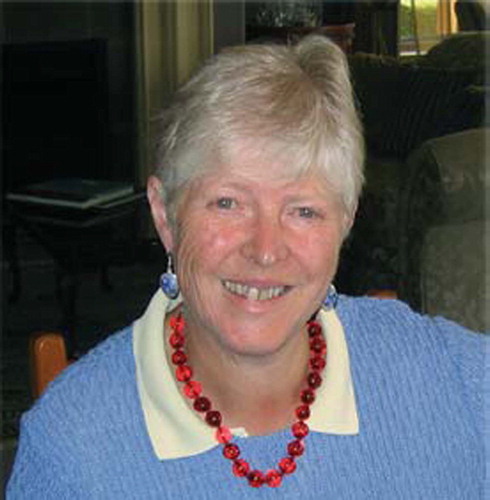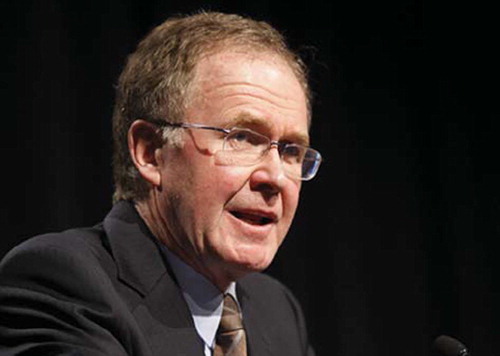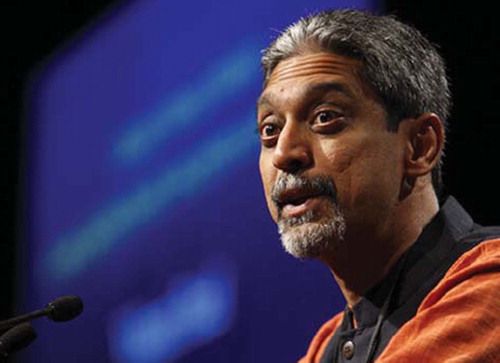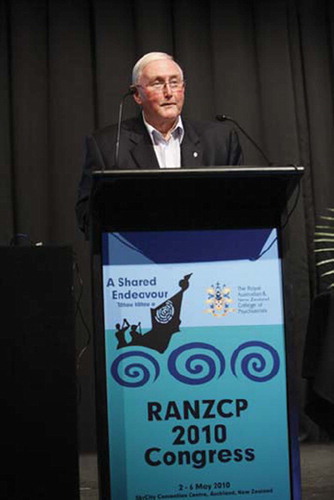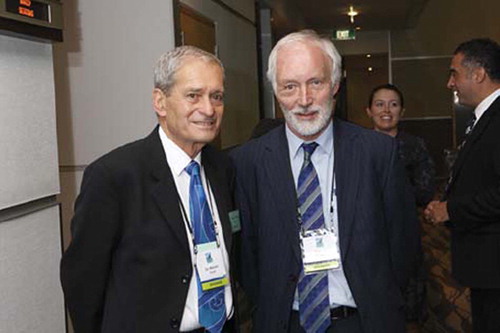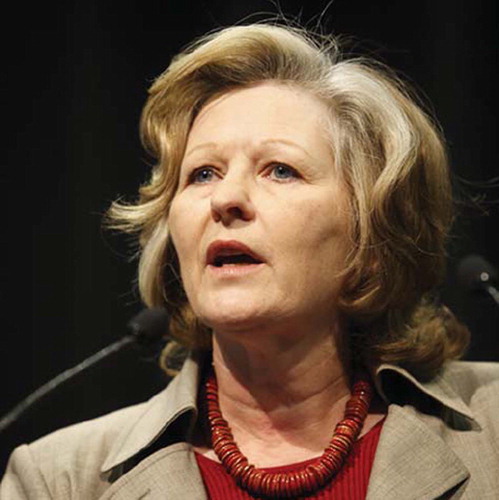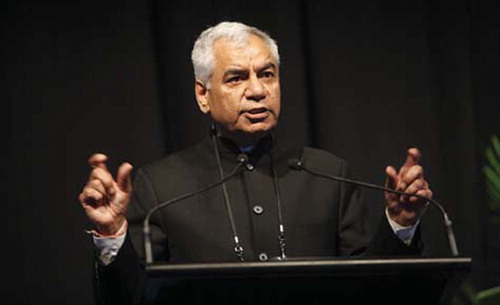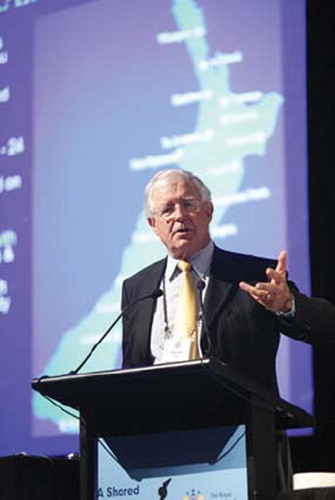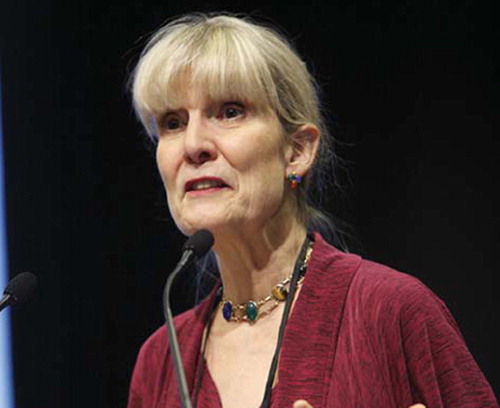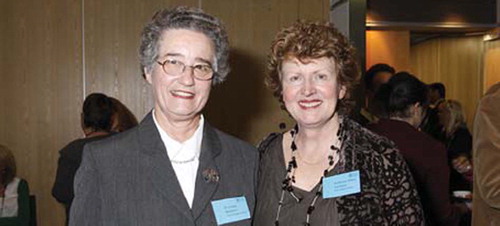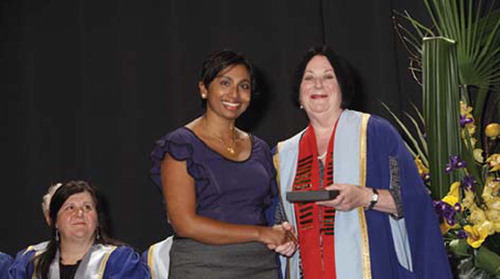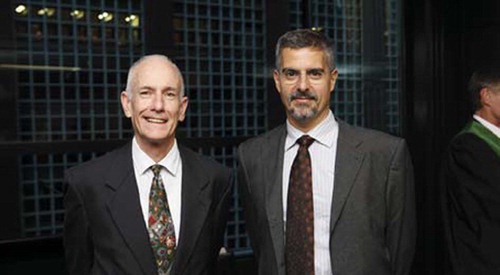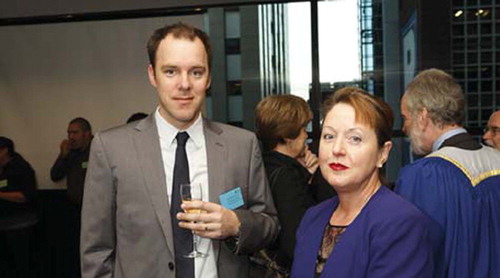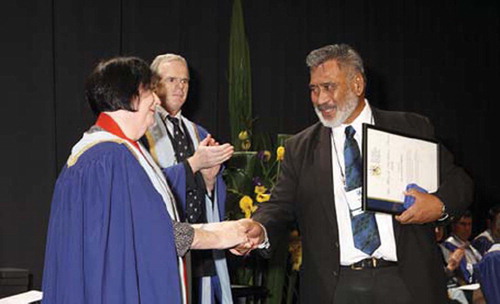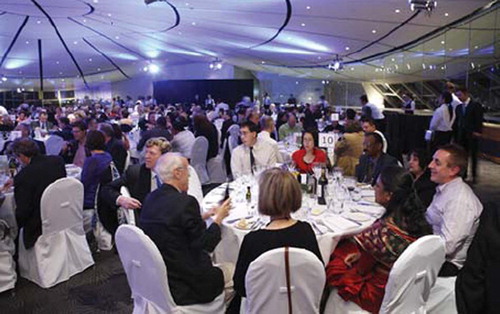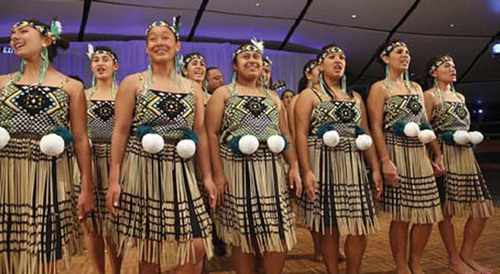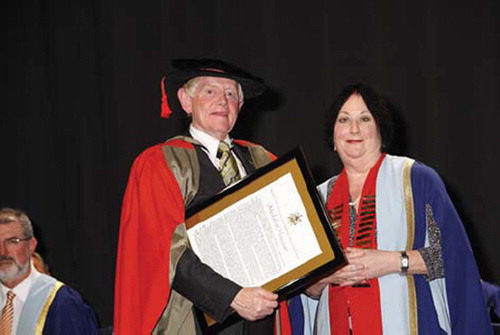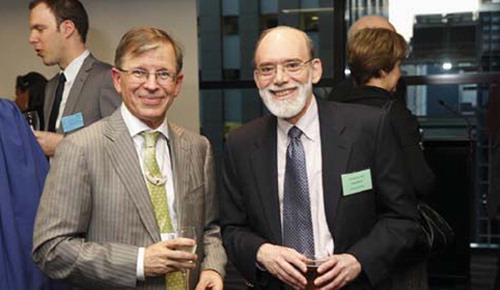E kea kaa tiritiri o te moana (Ascend to the heights of your aspirations).
Kai Tahu whakatauaki (proverb).
Dr Jessie Anderson dedicated her life to serving the children, adolescents and families she worked with and made a major contribution to our understanding of child mental health problems through her ground breaking epidemiological research. As a child and adolescent psychiatrist, she was compassionate in her work with young people and their families and unwavering in her advocacy for them. She upheld the highest standards in her distinguished career as a child mental health researcher. She was the first Māori child and adolescent psychiatrist in New Zealand and played a leading role in the development of one of New Zealand's first Kaupapa Māori child and adolescent mental health services.
Jessie was one of five siblings born to her parents Jessie Henson and John Anderson. Her mother was of Kai Tahu, Kati Mamoe, Waitaha (Māori iwi or tribes from the South Island of New Zealand) and Scottish descent. Her Māori ancestors inhabited Rakiura (Stewart Island) and Whenua Hou (Codfish Island) south of New Zealand's South Island prior to the arrival of European explorers, sealers and whalers in the early 1800s. Her ancestor Wharetutu was a young woman of 15 years at the time she met and later married George Newton, a Scottish sealer and whaler in the late 1820s. Tuhawaiki, a chiefly relative of Wharetutu signed Te Tiriti o Waitangi (New Zealand's founding document) in 1841 on behalf of local iwi. Wharetutu's great granddaughter, Jessie's maternal grandmother was born in Southland in the 1860s and her family moved to Taranaki in her preschool years. Jessie's mother was born in Taranaki and was a bright student who was dux of her high school but was discouraged from attending university, by her family, following conventional values at the time. She was a talented singer and an accomplished water colour painter and later in Jessie's life she inspired Jessie in this pursuit. Jessie's father was a Scot from the western highlands who was a marine engineer and settled in New Zealand after marrying her mother in 1939.
Jessie's eldest sibling was her sister Jane and youngest was Mary. Her older brother Atholl Anderson became a renowned archaeologist and Professor of Anthropology at Otago University in Dunedin, before taking up a position as Professor of Prehistory at Australia National University. Atholl is considered by southern Māori to be a scholar of local Māori history and whakapapa (genealogy). He has written a definitive history of southern Māori iwi and has been closely involved in Kai Tahu treaty claims over the last 20 years. At Māori gatherings during her years in Dunedin, Jessie became used to being known as “Atholl's little sister”.
Jessie and her twin sister Margie were born on 14 October 1945. They were inseparable in their early years. On their first day at school, Jessie who was left-handed, was smacked across the knuckles for this. Margie hit the teacher and they ran away and went home. While Margie was angry with the teacher for “hitting my Jessie”, Jessie was most indignant that they hadn't been taught anything. So they refused to go back.
Even as a child Jessie was prepared to speak her mind. Margie recalled that their cheeky behaviour as six year olds led to a neighbour declaring that for “two pins” she would report this behaviour to their parents. Jessie, perched on a fence replied “Well I'm not giving you two pins so you can go away”.
By her college years, Jessie's academic acumen was obvious and it was her father who was determined that the girls in the family would have the option of a university education. Jessie completed high school physics and chemistry by correspondence as these subjects were unavailable at their local girls’ college. By her senior years she had already set her heart on medicine as a career.
Jessie completed her undergraduate medical degree from Otago in 1969, and after general medical and anaesthetic registrar experience, entered training in psychiatry in Dunedin in the late 1970s and completed specialist training in child and adolescent psychiatry in Dunedin in 1982. At this point she took advantage of a unique opportunity to join the Dunedin Multidisciplinary Health and Development Study research team, who were following a cohort of over 1000 children born in the early 1970s. During the course of her PhD she personally administered a structured child psychiatric interview to over 780 children from the cohort. The outstanding quality of her work in the context of the rigour of the Dunedin study led to this research being recognised as a pioneering contribution to child mental health epidemiology in Australia and New Zealand. This research, 20 years after Sir Michael Rutter's Isle of Wight study, became part of what Professor John Werry has described as a “rebirth and effervescence” of child psychiatric epidemiology in this region, alongside the work of Helen Connell from Queensland. It also drew international attention to the epidemiological gold mine that this cohort would become.
Subsequently Jessie was to become involved in a series of studies of the same cohort that documented rates of sexual abuse experiences and the degree to which such experiences would predispose women to later mental health problems. Jessie served on the Otago child protection team for many years and continued to speak out about child abuse and trauma in our communities through her working years. She served on the Otago University ethics committee. She taught child development and behavioural science to medical students over a ten year period and was open with students about her Māori background and the dilemmas associated with being “the whitest Māori in the room”.
As her mentor and colleague Professor Werry put it, Jessie “had a low tolerance for sloppy thinking and her mordant wit often cut through the miasma that can cloud meetings of psychiatrists and mental health professionals”. Her early child psychiatry experience was in a child mental health environment strongly flavoured by child psychoanalytic theory. Through her career she took exception to aspects of this theory and wasn't afraid to voice her dissent. She thrived on debate and could be uncompromising in her views. Jessie had high expectations of registrars and while this made for a stimulating experience, not all trainees found it comfortable. She had a great sense of humour and loved telling stories and wasn't averse to the odd snippet of gossip. She was a passionate champion for the underdog, and this was often apparent in her work with children, adolescents and parents, as well as in her support for organisations such as Red Cross, Women's Refuge and the SPCA. She had a wide social circle and will be remembered by friends and colleagues from many parts of the world who shared her research interests.
By 1995, she moved to the Kāpiti Coast in New Zealand's North Island to care for her mother and took up a full-time clinical position as a child and adolescent psychiatrist with the Porirua CAMHS service near Wellington. During the following ten years, Jessie's influence led to more widespread attention to diagnostic precision and use of the DSM in local CAMHS services and pragmatic approaches to clinical problems.
She became the first child and adolescent psychiatrist at the newly formed Māori Child Adolescent and Family Service (Māori CAFS) in Porirua. She also served as an advisor in Te Rau Matatini, the Māori child mental health workforce development agency. She had particular affection and passion for the work of the Māori CAFS service and relished being a member of the whānau (family) there. Her experience of acceptance there led to a flowering of her sense of identity as Māori. At the time she left Te Whare Mārie, she gifted a set of paintings to the whare (meeting house). These were of five maunga (mountains) considered sacred and integral to the identity of people from iwi (tribes) representing Nga hau e wha (the four winds or four directions). They were Te Reinga (in the far north), Taranaki, Aoraki (Mt Cook), Whitireia (Porirua) and Hikurangi (East Coast). Nga hau e wha is a metaphor for inclusion and acceptance of people from many backgrounds and places.
Jessie's final years of child psychiatric practice were in a rural setting in Blenheim, a return to the South Island. She retired finally in early 2008.
Outside of her working life she remained extremely close to her twin sister Margie and in later years Margie was able to persuade her to take time away from work for travel to countries such as China, Mongolia, Iceland and Alaska. As well as painting, Jessie was a keen gardener and loved music. She was club captain for the Otago ski club in the 1980s and continued to enjoy tramping in the New Zealand bush up until a few months before her death on 21 November 2009 from a recurrence of breast cancer.
No reira e te whaea
Takoto
Takoto
Takoto mai i te ahuatanga a te Matua nui i te Rangi.
Dr Allister Bush and Dr Hinemoa Elder
RANZCP 2010 Congress
“A shared endeavour” was both the theme and outcome of the RANZCP 2010 Congress in Auckland from 2 to 6 May 2010.
Over 800 Congress delegates came together to look at ways of tackling local and global mental health problems, and of sharing recovery with consumers and carers. The proverb, or whakatauki, “Tātou Taātou e”, meaning everyone being and so progressing together, complemented the theme.
Delegates were treated to a traditional Māori whakatau welcome to Auckland from the Ngati Whatua people and RANZCP Kaumatua Mr Arama Pirika at the opening ceremony, and Congress Chair Professor Sandy Simpson introduced the Congress with the words “partnerships and relationships are crucial to what we do”.
New Zealand's former Health and Disability Commissioner and newly appointed Professor of Health, Law and Policy at the University of Auckland Mr Ron Patterson officially opened the Congress, speaking of education of the public, quality care and advocacy for mental health as key areas of working together to advance mental health awareness and treatment: “Psychiatrists are uniquely placed to speak out about the need for more and better services for patients.” Similarly RANZCP President Professor Louise Newman said that “psychiatry has a key role to advocate for the rights of all people to decent mental health services”. Following the first keynote presentation by Professor Vikram Patel everyone came together for the welcome reception in the exhibition hall.
A field of eminent keynote speakers presented on a diverse range of understandings of the human condition at the Congress including:
Professor Vikram Patel, Professor of International Mental Health and Wellcome Trust Senior Clinical Research Fellow at the London School of Hygiene and Tropical Medicine, London whose book Where There Is No Psychiatrist is a widely used manual for community mental health in developing countries, Global Mental Health - a New Discipline Comes of Age
Mr Jim Crowe, a community worker and mental health advocate for over 20 years, particularly in Asia, The Asian Forum – A Shared Endeavour
Professor Sir Mason Durie, Professor of Māori Research and Development and Assistant Vice-Chancellor (Māori & Pasifika) at Massey University, on the governing body of Te Wananga o Raukawa, a tribal tertiary education institution and an expert on Māori mental health and indigenous development, Indigenous Interventions in Mental Health: Māori Experience
Professor Sheila Hollins, Professor of Psychiatry of Intellectual Disability at St. George's, University of London and key researcher on deinstitutionalisation, health inequalities for people with intellectual disabilities and mental health outcomes following bereavement and abuse, Better Lives and Better Mental Health for Children and Adults with Intellectual Disabilities
Professor Paul Appelbaum, the Elizabeth K. Dollard Professor of Psychiatry, Medicine and Law, Director Division of Law, Ethics, and Psychiatry, Department of Psychiatry, College of Physicians and Surgeons of Columbia University, and an expert on law and ethics in clinical practice and research, From Institutional Coercion to Community Leverage: Psychiatry in the 21st Century
Professor Dinesh Bhugra, President of the Royal College of Psychiatrists, Professor of Mental Health and Cultural Diversity at the Institute of Psychiatry, Kings College London, and Honorary Consultant at the South London and Maudsley Trust, Bollywood to Hollywood
Professor Richard Faull, Professor of Anatomy at the University of Auckland, founder of the internationally recognised Human Brain Bank to support worldwide research on neurodegenerative diseases and specialist on Huntington's, Alzheimer's, Parkinson's disease and Epilepsy, Stem Cells and Neurogenesis in the Human Brain - Fact and Fantasy
Dr Nancy McWilliams, teacher at the Graduate School of Applied and Professional Psychology at Rutgers, the State University of New Jersey and expert on personality structure and personality disorders, psychodiagnosis, sex and gender, trauma and psychotherapy, What Happened to our Shared Understanding of Mental Health?
A diverse scientific program offered the opportunity for attendees to explore ideas, to be intrigued and challenge their perspectives. 168 presentations and 157 speakers enabled people to share knowledge, understanding and information.
At the College Ceremony RANZCP President Professor Louise Newman welcomed new Fellows to the profession and encouraged new and existing Fellows to “maintain a focus on the core values of our profession”. Australian of the Year Professor Patrick McGorry presented the College address and spoke about the underfunding of mental health, the need for major health structural reform and the desire for more champions for mental health; “we have to bring the public with us,” he said.
New Fellows and recipients of advanced training certificates were presented at the Ceremony, and the following College awards were presented for significant contribution to psychiatry and the College:
The College Medal of Honour – Professor Graham Burrows
The College Citation – Professor Helen Herrman
The Ian Simpson Award – Dr Cristea Mileshkin
The Maddison Medallion – Dr Sumitra Shankar
The Schering-Plough Senior Research Award – Professor Ashley Bush and Professor Bryan Mowry
The Schering-Plough Young Psychiatrist Award – Dr Simon Jones
The Margaret Tobin Award – Associate Professor Beth Kotzé
The HB Williams Memorial Travelling Professorship – Dr Gary Schoener
The Howard Cooper Travelling Fellowship in Child and Adolescent Psychiatry – Dr Nurulwafa Hussain
The Mark Sheldon Prize – Mr Arama Pirika
The Connell Werry Prize – Dr Yolisha Singh
To encourage trainee and early-career psychiatrists’ involvement at Congress, and to support emerging researchers, a number of prizes were given for high-quality research and presentations throughout the week. Congratulations to the following trainees and young Fellows: Dr Melanie Turner (Pfizer Congress Presentation Award), Dr Chris Plakiotis (Pfizer Congress Poster Award), Dr Susanna Palmer (Dawn Short Memorial Award), and Dr Rameswaran Vannitamby (Committee for Research Congress Trainee Presentation Award).
The Annual General Meeting heard reports from the President, Honorary Secretary, Board of Education Chair and Board of Practice and Partnerships Chair and received the financial statements and reports from the Treasurer. The retirement of Ute Rozenbilds from General Council was announced, along with the appointment of Dr John Crawshaw as Board of Education Chair and the appointment of Dr Peter Tyllis and Dr Surinderjit Johl as Branch Councillors on General Council. Mr Jim Crowe, the New Zealand representative on the Community Collaboration Committee, thanked the College for their continuing openness towards working with consumers and carers and asked the College continue this important relationship.
With 360 degree views of Auckland by night, gala dinner guests at the Auckland Museum were entertained by master of ceremonies Dr Liam O'Connor, an energetic Māori performing arts presentation by teenage Kapa Haka group, Te Roopu Kapa Haka o Te Puna o Waioera, a humorous and informative speech by Judge David Carruthers, Chair of the New Zealand Parole Board, and a classic hits band, Blue Steele, which stimulated enthusiastic dancing and ensured a packed dance floor.
An outstanding Congress was farewelled at the closing ceremony with College President Professor Louise Newman concluding it was pleasing to “have time to reengage with our core values and the social contract we have as a profession with the communities we serve”
Congratulations to Congress Convenor Professor Sandy Simpson, Scientific Program Committee Chair Dr Simon Hatcher and the New Zealand Organising Committee on an engaging and memorable Congress.
Now we turn to 2011, and the first RANZCP Congress to ever be held in Darwin, from 29 May to 2 June 2011.
College Awards
Each year, the College presents a variety of awards, grants and prizes, to acknowledge outstanding achievements and contributions to psychiatry, the community, and the College, and to recognise excellence in psychiatric research and training or encourage new and emerging researchers.
At the 2010 Congress in Auckland, the following awards were formally presented as part of the College Ceremony.
The College Medal of Honour
The College Medal of Honour, established in 1987, is presented for distinguished and meritorious service to the College.
The 2010 College Medal of Honour was awarded to Professor Graham Burrows of Victoria. His citation reads:
Professor Graham Burrows
The Royal Australian and New Zealand College of Psychiatrists is pleased to award the College Medal of Honour to Professor Graham Burrows.
The Medal of Honour acknowledges Professor Burrows’ distinguished and outstanding contributions to the College, the community, and the profession of psychiatry both nationally and internationally.
Professor Burrows has served the College energetically through sustained involvement in College affairs over a forty-year period. He has served on the Victorian Branch Committee (including extensive periods as Chair) since 1970, representing and leading the Victorian Branch in engagement with the community, the media, and in areas of policy and practice standards. During this time Professor Burrows has also demonstrated commitment to the RANZCP bi-nationally, including as a General Councillor, Chair of the Section of Social and Cultural Psychiatry, inaugural Chair of the Board of Research, and as a member of the Committee on Psychotropic Drugs and Other Treatments.
Professor Burrows has a richly-deserved international reputation in diverse research areas including the mood and anxiety disorders, chronic pain and psychosomatics, and hypnosis, and he has been central to the establishment of modern psychopharmacology in Australia. Professor Burrows has been a prolific contributor to the psychiatric literature in Australia and overseas: he has edited/authored 103 books, published over 743 scientific articles in refereed journals, and has contributed 180 chapters to other books. He has also served on editorial boards of 30 international and Australian journals. Professor Burrows has further contributed to the dissemination of knowledge in the psychiatric community through his organisation of many conferences, congresses and scientific meetings – including most recently the 2008 RANZCP Congress in Melbourne.
Outside of the College, Professor Burrows’ professional contributions have been extensive: he has been involved in numerous advisory boards at state, national and international levels, and he has played active roles in many organisations including The World Federation for Mental Health, The Australasian Society for Psychiatric Research, AMA Victoria, The Collegium Internationale Neuro-Psychopharmacologicum, The Australian and International Societies of Hypnosis, and The Royal Society of Victoria. Professor Burrows has also provided distinguished service as the Foundation Professor of Psychiatry at the Austin Hospital, and as Clinical Director of the Mental Health Clinical Service Unit at Austin Health.
Professor Burrows has been an energetic campaigner for the welfare of consumers and has a long history of involvement in advocacy, leadership and active participation in voluntary mental health organisations, including most notably The Mental Health Foundation of Australia and The Mental Health Foundation of Victoria. He was appointed an Officer of the Order of Australia in 1989, in recognition of his service to medicine.
On the basis of his long and selfless service to the RANZCP, the profession of psychiatry and the community, Professor Graham Burrows is commended as a most worthy and meritorious recipient of the College Medal of Honour.
The College Citation
The College Citation recognises special service to the RANZCP or to psychiatry, and may be awarded to a Fellow or other medical or non-medical nominee.
The 2010 College Citation was awarded to Professor Helen Herrman of Victoria. Her citation reads:
Professor Helen Herrman
The Royal Australian and New Zealand College of Psychiatrists is pleased to award a College Citation to Professor Helen Herrman, for her clinical and academic leadership and her significant contribution to international and national mental health.
Professor Herrman is an internationally-recognised expert in the field of mental health promotion. She also has extensive research and leadership credentials in epidemiological and community psychiatry, depression in primary health care, and clinical psychiatric service development. Recipient of a prestigious NHMRC Practitioner Fellowship (2010–2014), Professor Herrman is currently Professor of Psychiatry, Orygen Youth Health Research Centre at the University of Melbourne, and Director of the World Health Organization (WHO) Collaborating Centre for Mental Health in Melbourne.
From 1992–2005 she was Professor and Director of Psychiatry at St Vincent's Health, Melbourne and the University of Melbourne, and had executive responsibility for mental health service development and management during a period of major national reform. Professor Herrman has provided expertise and leadership into many state and national initiatives, including the National Mental Health Strategy, the Australia-Japan Partnership in Mental Health, VicHealth, and Victorian clinical service reviews. She has also greatly enhanced teaching and research programs through several key academic roles at Australian universities.
Professor Herrman has established partnerships and activities to benefit psychiatry in the Asia-Pacific region and globally. Professor Herrman's work with the WHO began in 1989, and as the Director of the WHO Collaborating Centre for Mental Health, she has actively fostered local community psychiatry initiatives and training programs for clinicians throughout the region. She has been involved in the development of regional mental health strategies through the WHO Western Pacific Regional Office, and has also worked with countries in the region on a range of projects and policy developments.
Professor Herrman's dedication to improving mental health outcomes globally is further demonstrated by her extensive involvement with the World Psychiatric Association (WPA). She has an active role in the WPA's Executive Committee as Secretary for Publications that includes convening an innovative taskforce on best practices for working with service users and carers, and a range of scientific and organising responsibilities. She is a member of the World Economic Forum's Global Agenda Council on Chronic Diseases and Conditions, and is also the World Federation for Mental Health's Regional Vice-President, Oceania.
Work with the RANZCP includes serving as founding Chair of the Professional Relations Committee (Australia) within the Board of Professional and Community Relations, and Co-Chair of the Organising Committee for the successful WPA International Congress of Psychiatry held in Melbourne in November 2007, with its theme of partnerships in mental health.
Professor Helen Herrman is held in the highest regard both by the College and by her peers. For her services to psychiatry locally, nationally and internationally, she is a worthy and meritorious recipient of a College Citation.
The Ian Simpson Award
The Ian Simpson Award acknowledges the most outstanding contributions to clinical psychiatry as assessed through service to patients and to the community.
The 2010 Ian Simpson Award was awarded to Dr Cristea Mileshkin, of Victoria. Her citation reads:
Dr Cristea Mileshkin
The Royal Australian and New Zealand College of Psychiatrists is pleased to award the Ian Simpson Award to Dr Cristea Mileshkin, for her outstanding contribution to clinical psychiatry as assessed through service to patients and to the community.
In a career spanning four decades, Dr Mileshkin has demonstrated a commitment to clinical excellence, service development and innovation, and has exemplified the skill, integrity, compassion, empathy and fortitude of a model senior public psychiatrist and teacher.
During her twelve-year tenure as Maroondah Hospital's Clinical Director, Adult Psychiatry, Dr Mileshkin was closely involved in the establishment of Spectrum, the Personality Disorders Service for Victoria. Offering treatment for people with severe personality disorders, consultation to area mental health services and training programs for the state of Victoria, Spectrum is the only service of its kind in Australia, and Dr Mileshkin was central to its early development and future direction.
Later, as Director of Clinical Services at St Vincent's Mental Health Service, Dr Mileshkin was a consultant psychiatrist in one of the first Crisis Assessment and Treatment Teams (CATT) in Victoria. She was instrumental in the development of the CATT and its continuing evolution into a cutting-edge service. The latter encompassed the integration of triage, multidisciplinary mental health clinicians and emergency medicine clinicians in the continuum of care in the Emergency Department. Dr Mileshkin also introduced an integrated early psychosis program for adults aged 16–64 years, and championed the introduction of a recovery-based model of case management (Strengths model) in an Australian mental health setting.
Dr Mileshkin has been a mentor and role model for countless psychiatry trainees and younger colleagues, who have readily accessed her ‘open-door’ approach, razor-sharp mind and wisdom. Her contribution to the future of psychiatry through the training and support she has provided is enduring, both because of her direct contact with trainees at the institutions where she has worked, and also through inter-generational effects transmitted by those she has trained.
Dr Mileshkin's personal and professional style is understated, but she has perfectly blended the roles of consultant psychiatrist, manager and teacher. She has consistently set a standard of clinical excellence combined with compassion and humanity towards her patients.
Dr Cristea Mileshkin is held in the highest regard both by the College and by her peers, and is a worthy and meritorious recipient of the Ian Simpson Award.
The Maddison Medallion
Established in 1968 to recognise and encourage excellence in the study of psychiatry, the Maddison Medallion is awarded to the candidate who has performed most meritoriously throughout the RANZCP Fellowship training and examination process.
The 2010 Maddison Medallion was awarded to Dr Sumitra Shankar of New South Wales.
The Schering-Plough Senior Research Award
The Schering-Plough Senior Research Award recognises the RANZCP Fellow or Fellows who have made the most significant contributions to psychiatric research in Australia and New Zealand over the past five years.
The award was conferred jointly in 2010, to Professor Ashley Bush of the Mental Health Research Institute in Melbourne, and Professor Bryan Mowry of the Queensland Brain Institute.
Both recipients presented their research as keynote addresses during the College Congress: “A Disease-Modifying Drug for Alzheimer's Disease” (Professor Bush), and “The Challenging Reality of Schizophrenia Genetics” (Professor Mowry).
The Schering-Plough Young Psychiatrist Award
Dr Simon Jones of Victoria was presented with the 2010 Schering-Plough Young Psychiatrist Award, for his research examining psychogenic non-epileptic seizures. The award, established in 1979, seeks to encourage and recognise significant research conducted by a trainee or newly-admitted Fellow.
The Margaret Tobin Award
Associate Professor Beth Kotzé received the 2010 Margaret Tobin Award, given each year to the Fellow who has made the most significant contribution to administrative psychiatry in Australia or New Zealand over the preceding five years. Associate Professor Kotzé also delivered the annual Margaret Tobin Oration during Congress.
The Mark Sheldon Prize
The Mark Sheldon Prize recognises continuing and outstanding contributions to Indigenous mental health in either Australia or New Zealand. The Prize is named in honour of the late Dr Mark Sheldon, who until his death in 1998 strove to provide psychiatric services to remote Aboriginal communities.
The 2010 Prize was awarded to Mr Arama Pirika, of New Zealand, for his tireless work with Māori with mental illness, and for his leadership and guidance in relation to appropriate service provision to Māori. Mr Pirika shares his experience and knowledge at regional and national levels, and makes extensive contributions to the work of the RANZCP as Kaumatua for the College in New Zealand.
The HB Williams Travelling Professorship
The HB Williams Memorial Travelling Professor program enables a distinguished leader in psychiatry or one of the allied sciences to visit Australia and New Zealand, for the purpose of exchange of ideas and information through educational activities and site visits.
After delivering a range of seminars, workshops and activities across Australia and New Zealand, Dr Gary Schoener, the 2010 Travelling Professor was formally presented as part of the College Ceremony. Dr Schoener also presented a keynote presentation and a workshop on boundary violations during Congress.
The Connell Werry Prize
Dr Yolisha Singh, an advanced trainee in child and adolescent psychiatry, was awarded the Connell Werry Prize for her outstanding paper at the 2009 Faculty of Child and Adolescent Psychiatry conference.
The Howard Cooper Travelling Fellowship
The Howard Cooper Travelling Fellowship is awarded annually to a visiting overseas trainee psychiatrist or psychiatrist from the Asia-Pacific region who wishes to gain experience in child and adolescent psychiatry in Australia or New Zealand. The 2010 Fellowship has been awarded to Dr Nurulwafa Hussain of Malaysia.
College Ceremony and Congress photos
Photographs taken by photographer Larry Pitt at the RANZCP Congress 2010 in Auckland, including the College Ceremony, are available for purchase online at www.ourphotographer.com.au.
Larry Pitt may be contacted by telephoning 1300 727 008 or by emailing [email protected].
RANZCP Victorian Bushfire Response Project
As part of its response to the 2009 Victorian bushfires, the Commonwealth Department of Health and Ageing (DoHA) provided funding to the RANZCP to facilitate training for psychiatrists and to enhance referral pathways in order to improve mental health services to those individuals affected by the Victorian bushfires.
The aims of the project were to: up-skill psychiatrists in order to support them in their dealing with people traumatised by the Victorian bushfires; and assist general practitioners (GPs) and other health professionals in making appropriate referrals to psychiatrists in the context of the Victorian bushfires.
The project held four up-skilling workshops for Victorian psychiatrists informed by the latest evidence-based research and including information regarding: referral pathways for severe illness; availability of community supports; shared care processes; and current controversies in the management of severe trauma responses. One of these workshops focused specifically on trauma response for children, adolescents and their families.
8.2% of all Victorian psychiatrists (61 out of 741) completed the up-skilling workshops run by this project, including 10.9% of Victorian child and adolescent psychiatrists (15 out of 138). The results from the workshop evaluation surveys show that demographically, the majority of up-skilling workshop attendees had ten or more years of experience as practising psychiatrists, were reasonably evenly split between both genders, and were comparatively evenly distributed between private practice, public practice and a mixture of public and private practice.
Over 80% of attendees had a practice in a metropolitan or suburban location; however a significant amount at nearly 19% worked in a rural area either exclusively or partially. The 19% rural attendance at the up-skilling workshops was significant as it represented an over proportion of rural psychiatrists. Only 10.4% of Victorian psychiatrists who responded to a workforce survey conducted by RANZCP in 2008 worked either exclusively or partially in a rural area and this figure reflects workforce shortages in rural areas nationally.
Psychiatrists who attended the project's up-skilling workshops reported overall increases in: their level of interest in trauma as an area of specialty; their knowledge of clinical techniques for trauma response; and their competency in responding to people traumatised by the Victorian bushfires. The workshop training package developed by this project has relevance to other emergencies and could, with minor amendments, be used in other jurisdictions.
To help engage the mental health workforce to meet the high end needs of the affected population, and to support the collaborative delivery of mental health care, the project also worked to improve the referral information available to GPs and other health professionals. In order to provide efficient and effective referral information, the project surveyed Victorian psychiatrists to gain data on individual experience in trauma response and individual availability for emergency response.
This enhanced disaster response data has now been incorporated into the Disaster Response Referral Directory available to GPs and other health professionals by contacting the RANZCP Victorian Branch either via phone +61 (0)3 9601 4924 or email [email protected]. The availability of this enhanced service is currently being promoted to key stakeholders in Victoria. Enhancements to the referral directory service will support the activities of GPs and other health professionals in providing appropriate, timely, efficient and effective psychiatric referrals to consumers and carers. This Victorian database will also be made available in the event of another emergency.
For further information on this project, please contact Robin Shepherd, Project Officer on [email protected].
Rural Special Interest Group profile
The committee of the RANZCP's Rural Special Interest Group meets regularly to discuss issues related to rural psychiatry. Committee representative Dr Murray Chapman is the Clinical Director of the Kimberley Mental Health and Drug Service and here he discusses living and working in rural and remote Australia.
Dr Murray Chapman on the bonnet of his car after impaling the car on a ledge during an advanced 4WD training course

I recall the first thing my wife said on landing at Broome Regional Airport – “It's quite hot”. It was August, a prime month in the dry, or cool season, up here. To be fair she was pregnant, and we were from London. The wife of the Director of the Mental Health Service had come to the airport to take us to our new home, and she overheard the comment. I was later told that as a couple we were expected to last less than three months in the Kimberley.
Looking back now, that's some eight years ago! That's a very long time when you consider that the average “shelf-life” of any doctor in the north west of Australia is much less than two years (imagine the continuity of care issues). Plenty has happened over that time of course.
I do recall the relatively early shock of discovering that, as if servicing the vast Kimberley region wasn't enough for two psychiatrists, we were also responsible for the Pilbara region. In hindsight I should have picked up on the issue during my telephone interview for the position, which had included someone from a place called Port Hedland. For the next three years, every other week, I would clamber onto a twin prop ten seater with my psychiatrist colleague and travel down a glorious yet seemingly barren coastline, to alight in Karratha for three days work in the clinic. The trip would take three hours each way, and most times I took to sitting up front with the pilot, headset on, chatting about flying and footie teams. Occasionally we might hear from a Singapore bound 747 in the same sector, or we might retune to catch a live cricket commentary to relieve the boredom that exists between the rush of take-off and the peril of a crosswind landing.
The next shock was discovering that the nearest authorised inpatient unit was in Perth, and that meant a seven hour trip in a Royal Flying Doctor Service plane for the patient and a police officer. There have always been echoes of the Stolen Generations in this hub and remote spoke model for me, and I guess I have habituated to some patients having to be returned home early, simply because the accumulating consequences of being kept “out of country” outweighed even the disability of their severe mental illness.
In the alternating weeks I remained in the Kimberley but there was to be no let-off from the travel schedule, as I routinely drove to Derby and Fitzroy Crossing, staying away for two nights in a tent or a hotel. I am of course in awe of my wife, coping alone so many nights with an infant who was decidedly not a good sleeper. We had a practice run caring for an orphan wallaby in Broome before the birth, but somehow a human infant wasn't quite the same. She didn't fit into the bag on the doorknob for a start.
Of course the problems so often shared across the top half of Australia have not gone away over the last eight years. The very high suicide rates, particularly in Indigenous young males, the appalling living conditions in remote communities, the alcohol and increasingly other substance problems that span the whole population (including Fetal Alcohol Spectrum Disorder), the complications of “fly in fly out” lifestyles for many workers and their families. Also, the sheer remoteness and inevitable economic inefficiency of service provision to such a highly dispersed and socially, economically and historically disadvantaged population stubbornly refuse to change. There are glimmers of hope, however, with the very successful alcohol restrictions in several towns and of course the national apology (not a solution in themselves, but a beginning point, long overdue). These are, I think, lines in the sand, that I hope can pave the way to improving some of the local determinants of mental health.
So what sustains an “ex-pom city boy” like me up here, right on the edge of this vast continent (nearest city–Denpasar)? Is it the comradeship of a small team, the values and example of my predecessors, a population so resilient but so in need of assistance, the uniqueness of the Kimberley wilderness, the strangely cosmopolitan nature of Broome life, fish and chips on Cable Beach? I'm not really sure, but I do know it's still quite hot up here!
Rural practitioners interested in further information about the RANZCP's Rural Special Interest Group are encouraged to contact Rachael Williams via email on [email protected].

